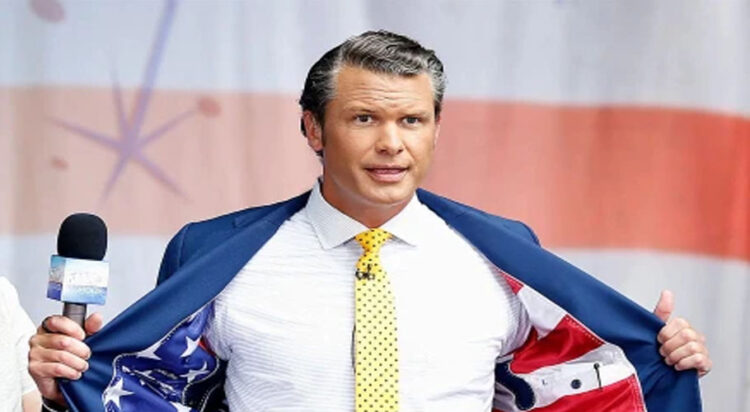Pete Hegseth, a former Fox News host and political analyst, has officially taken office as the 29th U.S. Secretary of Defense after a highly scrutinized confirmation process. Hegseth, 44, was sworn in on Thursday following his narrow confirmation by the U.S. Senate, despite facing significant opposition and controversy over past allegations.
The confirmation process, which included a marathon series of hearings, became a flashpoint of intense political debate. Hegseth faced tough questioning from lawmakers about accusations of sexual misconduct, alcoholism, and infidelity, which resurfaced during the Senate hearings. These allegations, though not resulting in criminal charges, prompted concerns from several senators regarding his suitability for the role.
While the majority of Republican senators rallied behind Hegseth, three key GOP members voiced their opposition, joining Democrats in expressing concerns about his character and fitness for office. As a result, the Senate vote ended in a 50-50 deadlock. In an unprecedented move, Vice President J.D. Vance cast the tie-breaking vote in favor of Hegseth, allowing him to secure the position.
Hegseth’s confirmation signals a shift in the leadership of the Pentagon as he takes over at a time of growing global tensions and shifting national security priorities. In his first statement after taking the oath of office, Hegseth reassured the American people, declaring, “I will prioritize America above all else, ensuring our military remains the strongest and most effective force in the world.”
A combat veteran who served in the U.S. Army, Hegseth is no stranger to high-profile roles. Before his confirmation, he spent years as a prominent television personality and analyst at Fox News, where he gained a reputation for his combative style and strong conservative viewpoints. He is also known for his vocal support of former President Donald Trump and his “America First” agenda.
As Secretary of Defense, Hegseth will be responsible for overseeing nearly 3 million military personnel, civilian employees, and contractors across the Department of Defense. His budgetary oversight will include the management of the U.S. military’s staggering $849 billion annual budget, making him one of the most powerful figures in the U.S. government.
The confirmation has sparked mixed reactions, with some praising Hegseth’s military experience and leadership qualities, while others remain deeply concerned about his controversial past. Critics have argued that the allegations surrounding Hegseth should have disqualified him from the position, particularly given the sensitivity of the role in overseeing the U.S. military.
Despite the divided opinions, Hegseth now faces the daunting task of navigating the complexities of U.S. defense policy, managing the Pentagon’s internal challenges, and ensuring that American military forces remain prepared to respond to global threats, including an increasingly assertive China and Russia.
Throughout the confirmation process, Hegseth remained steadfast, often emphasizing his dedication to the nation’s security and his belief in a strong, modernized military. His tenure as Secretary of Defense will be closely watched, as his leadership style could have significant implications for the future of U.S. defense strategy.
For now, with his confirmation secured and his oath of office completed, Hegseth is poised to step into one of the most powerful and influential positions in the U.S. government. How he handles the responsibilities of his new role will shape both his legacy and the future of the Pentagon’s strategic direction.


































